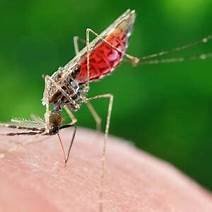Next Event: A Journey for Justice: How plastic waste creates risks for mosquito-borne diseases – and what we can do about it
About the Webinar: For nearly twenty years our research has uncovered the great burden of mosquito-borne viruses in Kenya. Usually mistaken as malaria, arthropod-borne viral (arboviral) infections cause fever and illness commonly, but are rarely diagnosed. The only means of prevention is to prevent the bite of the mosquito. During our community-based intervention and prevention work, we discovered the hidden culprit behind this great disease burden- PLASTIC TRASH! It turns out that plastic is breeding mosquitoes and making people sick in Kenya and in many other parts of the world. I will discuss our research, the disease links to plastic waste and our new nonprofit that is tackling this plastic pollution crisis, the Health and Environmental Research Institute- Kenya.
For nearly twenty years our research has uncovered the great burden of mosquito-borne viruses in Kenya. Usually mistaken as malaria, arthropod-borne viral (arboviral) infections cause fever and illness commonly, but are rarely diagnosed. The only means of prevention is to prevent the bite of the mosquito. During our community-based intervention and prevention work, we discovered the hidden culprit behind this great disease burden- PLASTIC TRASH! It turns out that plastic is breeding mosquitoes and making people sick in Kenya and in many other parts of the world. I will discuss our research, the disease links to plastic waste and our new nonprofit that is tackling this plastic pollution crisis, the Health and Environmental Research Institute- Kenya.

